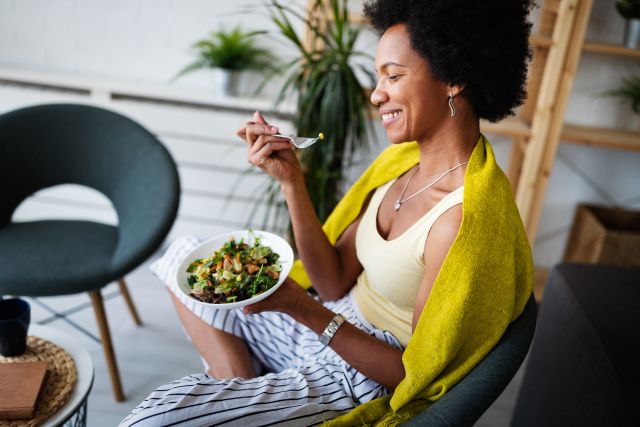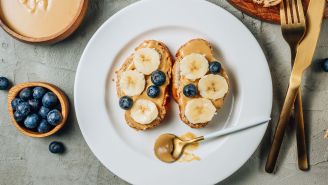Updated on January 11, 2023.
You might know that eating foods rich in calcium—and getting enough vitamin D—are essential to healthy bones. But did you know that you can help keep your skeleton strong and lower your risk of fractures by serving that calcium with a healthy salad on the side?
That’s because many salads are rife with carotenoids, powerful plant chemicals found in colorful fruits and veggies like tomatoes, carrots, and leafy greens. A four-year study published in Nutrients in 2017 found that older adults with the highest intake of carotenoids retained more bone mineral density than folks eating fewer fruits and veggies.
A little background on carotenoids
Carotenoids are antioxidants—substances that help protect against cell damage—and include compounds such as lycopene, beta carotene, lutein, and zeaxanthin, to name a few. These compounds help protect bone mineral density and slow bone loss.
There are 700 known carotenoids in nature. Humans consume 40 to 50 of them, mostly via produce. The Centers for Disease Control and Prevention (CDC) currently recommends that adults eat 1 1/2 to 2 cups of fruit and 2 to 3 cups of vegetables per day. Eating a veggie-packed salad will probably provide most of your daily carotenoid needs.
How carotenoids help bones
Carotenoids may protect bones by hampering oxidative stress, which occurs when there is an imbalance of harmful molecules called free radicals in your body. Oxidative stress is thought to play a role in age-related weakening of bones.
Carotenoids also work with other essential vitamins and nutrients to prevent bone loss and promote bone cell regeneration.
Getting enough carotenoids could help protect you or a loved one from a serious fracture, such as a hip fracture, which involves a difficult recovery. More than 300,000 people older than 65 are hospitalized for hip fractures each year in the United States, making bone health and preservation essential. A 2018 study of over 1,000 people published in the journal Bone found that consuming a high amount of certain carotenoids lowered the risk of hip fractures in people between 55 and 80 years old.
So, help protect your bones: Go ahead and order the salad.







